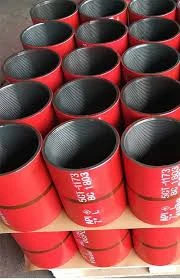bull plugs
Understanding Bull Plugs A Comprehensive Guide
Bull plugs, often referred to in various contexts, are specialized components primarily used in the fields of engineering, automotive, and fluid mechanics. These fittings play a crucial role in sealing and protecting openings on machinery, pipelines, and various types of equipment. In this article, we will explore the functionality, applications, and benefits of bull plugs.
What are Bull Plugs?
At its core, a bull plug is a type of closure device used to seal off a port or opening. They are typically made from robust materials such as stainless steel, brass, or plastic, depending on their intended use and the environment in which they will operate. Bull plugs can be characterized by their design; they are usually cylindrical and have a male or female threading that allows them to be securely fitted into the corresponding opening.
Applications of Bull Plugs
1. Hydraulic Systems In hydraulic systems, bull plugs are essential for preventing leakage and ensuring that hydraulic fluid remains within the system. They are used in hydraulic cylinders, pumps, and valves, where maintaining pressure is critical for the system's functionality.
2. Oil and Gas Industry The oil and gas sectors frequently utilize bull plugs in wellhead equipment and pipelines. These plugs provide a reliable seal to prevent leaks and loss of pressure, which is crucial in maintaining operational safety and efficiency.
3. Automotive Uses In automotive engineering, bull plugs are employed in engines and other components to cover unused ports. This helps to maintain system integrity and protects the internal mechanisms from contamination.
bull plugs

4. Fluid Transfer Systems In laboratories and various industrial applications, bull plugs are used in fluid transfer systems to seal off unused ports in piping or tanks. This ensures accurate measurements and prevents contamination of materials.
Benefits of Using Bull Plugs
- Leak Prevention One of the primary benefits of using bull plugs is their ability to prevent leaks, which is crucial for maintaining the integrity of a system. A small leak can lead to significant losses, particularly in high-pressure applications.
- Protection Against Contaminants Bull plugs protect internal systems from dust, debris, and other contaminants that could compromise functionality. This protective feature extends the life of the equipment and reduces maintenance costs.
- Ease of Use Many bull plugs are designed for easy installation and removal. This user-friendly characteristic allows for quick maintenance and adjustments, ensuring that systems remain operating efficiently.
- Versatility Available in various sizes and materials, bull plugs can be tailored to specific applications. Whether in industrial machinery, automotive applications, or fluid systems, there is a bull plug designed to meet the unique requirements of each situation.
Conclusion
In summary, bull plugs are integral components in numerous industries, serving critical functions in sealing and protecting openings in various systems. Their versatility, ease of use, and effectiveness at preventing leaks make them indispensable in hydraulic applications, the automotive industry, and more. As technology advances and manufacturing processes evolve, the design and functionality of bull plugs will likely continue to improve, further enhancing their role in industrial applications. Understanding their significance and proper usage can lead to better efficiency and safety in operations, highlighting the mundane yet vital nature of these often-overlooked components. Whether you are an engineer, a mechanic, or a DIY enthusiast, recognizing the importance of bull plugs is essential in ensuring the reliability and longevity of your systems.
-
Tubing Crossover - API Compatible, Custom Sizes, In StockNewsNov.10,2025
-
Tubing Coupling | High-Strength, Leak-Proof Steel CouplingsNewsNov.10,2025
-
Wholesale API Threading Casing Coupling | API 5CT, Fast ShipNewsNov.10,2025
-
Pup Joint Supplier | API Certified, Custom, Quick ShipNewsNov.10,2025
-
Pup Joint Manufacturers | Precision Machined, Fast DeliveryNewsNov.10,2025
-
Tubing Coupling | Precision Steel, Leak-Proof, Fast DeliveryNewsNov.03,2025







